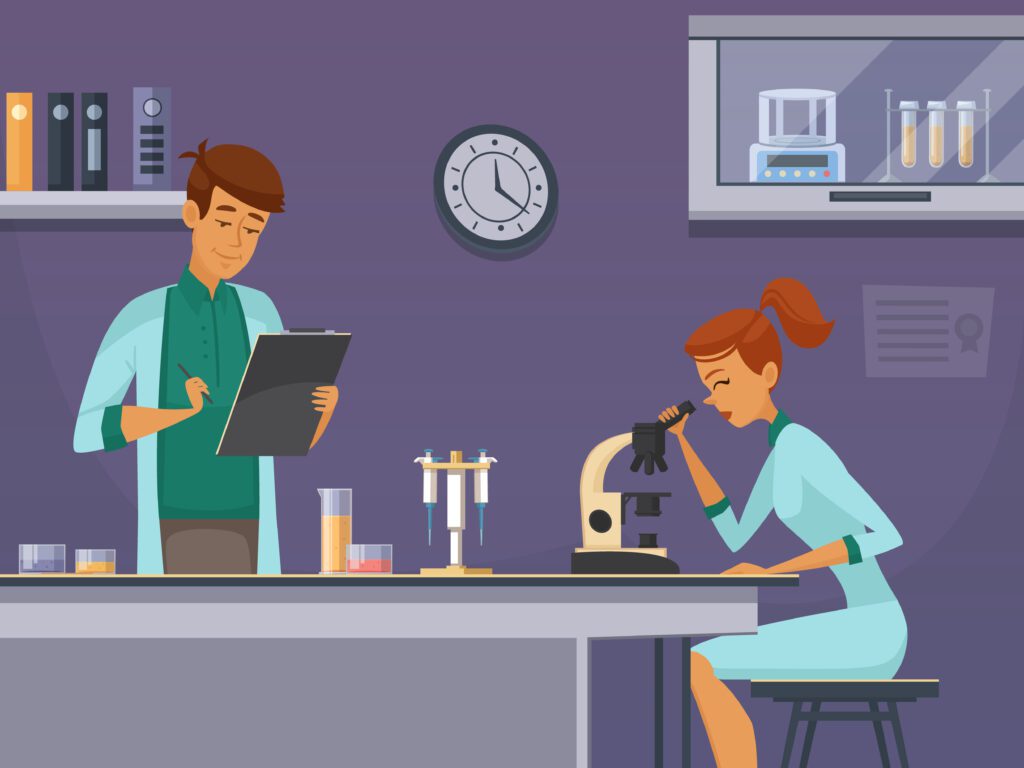Chemistry plays a crucial role in nursing, as it underpins many essential aspects of patient care and medical practices. From medication administration to disease diagnosis, nurses rely on their understanding of chemistry to provide safe and effective care.

Examples of chemistry in nursing
Here are 30 examples of the application of chemistry in nursing:
- Medication Administration: Nurses need to understand chemical properties of drugs for safe administration.
- Pharmacokinetics: Understanding drug absorption, distribution, metabolism, and excretion.
- IV Fluids: Preparation and administration of intravenous fluids with specific chemical compositions.
- Medication Reactions: Identifying potential drug interactions and adverse reactions.
- Laboratory Tests: Interpreting chemical lab results for diagnosis and treatment planning.
- Sterilization Techniques: Knowledge of chemical agents used for medical equipment sterilization.
- Disinfection Practices: Use of chemicals to maintain a clean and sterile environment.
- Blood Gas Analysis: Understanding acid-base balance through blood gas measurements.
- Antiseptics and Wound Care: Using chemical agents for wound cleaning and dressing.
- Chemotherapy Administration: Administering and monitoring chemotherapy drugs.
- Nutrition and Diet: Understanding the chemistry of nutrients for patient dietary needs.
- Diabetes Management: Monitoring blood glucose levels and administering insulin.
- Pain Management: Knowledge of analgesics and their chemical effects.
- Infection Control: Using chemical disinfectants to prevent healthcare-associated infections.
- Anesthesia Administration: Administering anesthetic agents safely during surgeries.
- Radiopharmaceuticals: Understanding the use of radioactive substances in imaging and treatment.
- Blood Transfusions: Compatibility testing and proper administration of blood products.
- Enteral Nutrition: Administering nutrients via the gastrointestinal tract using specialized formulas.
- Nursing Research: Analyzing chemical data in research studies for evidence-based practice.
- Toxicology: Identifying and managing chemical poisonings and overdoses.
- Ventilator Management: Understanding respiratory gas exchange and mechanical ventilation.
- Oxygen Therapy: Administering supplemental oxygen based on patient needs.
- Diagnostic Imaging: Understanding contrast agents used in radiographic procedures.
- Chemical Safety: Knowledge of handling hazardous chemicals in healthcare settings.
- Patient Assessment: Identifying potential chemical exposures and related health issues.
- Neonatal Care: Managing drug dosages and chemical interventions for premature infants.
- Palliative Care: Using medications to alleviate symptoms and improve patient comfort.
- Allergy and Immunology: Understanding chemical triggers and immune responses.
- Medication Calculations: Precise dosage calculations for accurate drug administration.
- Chemical Waste Management: Proper disposal of hazardous chemicals to protect the environment.
In nursing, a comprehensive understanding of chemistry is crucial for safe and effective patient care. From administering medications to interpreting lab results, nurses use chemical knowledge to make informed decisions and support patients’ well-being.

